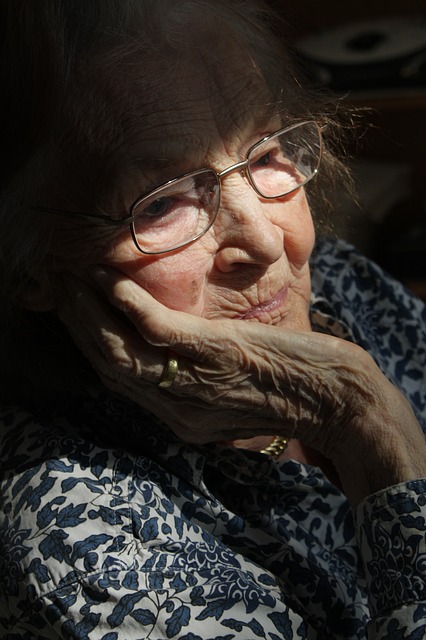This was the conclusion from Sarah Rochira, the Older People’s Commissioner for Wales after her review into care homes for older people, A place to call home? The Minister for Health and Social Services is due to make a statement on the review in Plenary this afternoon, which you can watch on Senedd TV. The review focused on quality of life and care for older people living in care homes, and there are many similarities with the findings of the Health and Social Care Committee’s Inquiry into residential care for older people in Wales (published in December 2012) – particularly Chapter 4 of the Committee report, ‘Living in residential care’.
[caption id="attachment_3060" align="alignright" width="200"] Image from pixabay by geralt. Licensed under the Creative Commons.[/caption] The Commissioner’s review found clear variations in the quality of care provided, even within individual care homes, and concluded that older people are often not receiving the level of care they have a right to expect. For example, the review found significant variations in the ways in which residents are assisted to use the toilet. Incontinence pads are often used inappropriately, with residents being told to use them, despite the fact they are continent and able to use the toilet, ‘stripping people of their dignity entirely in some cases’. Key conclusions from the review include:
Image from pixabay by geralt. Licensed under the Creative Commons.[/caption] The Commissioner’s review found clear variations in the quality of care provided, even within individual care homes, and concluded that older people are often not receiving the level of care they have a right to expect. For example, the review found significant variations in the ways in which residents are assisted to use the toilet. Incontinence pads are often used inappropriately, with residents being told to use them, despite the fact they are continent and able to use the toilet, ‘stripping people of their dignity entirely in some cases’. Key conclusions from the review include:
- Too many older people living in care homes quickly become institutionalised. Their personal identity and individuality rapidly diminishes;
- Too often, care homes are seen as places of irreversible decline and too many older people are unable to access specialist services and support that would help them to have the best quality of life;
- Some of the most basic health care needs of older people living in care homes are not properly recognised or responded to.
According to the review report, too many older people living in care homes do not have access to the basic screening and primary healthcare that would have been available while living in their own home, such as regular access to GP services, sight and hearing tests, podiatry services, dental treatment, medication reviews and specialist nursing care. NB: One of the conclusions from the Health and Social Care Committee’s Inquiry report (December 2012) was that ‘action is needed to ensure that older people in residential care have access to the same standards of healthcare services as the wider community’. Yesterday (Monday 9 February) the Deputy Minister for Health announced new funding to improve the oral health of older people living in care homes. Almost £320,000 will be targeted at care homes, which will be required to have a mouth care policy and at least one named oral care champion. All residents will have an oral risk assessment carried out by qualified care home staff within the first seven days of moving to the home and at appropriate agreed intervals afterwards. The Commissioner’s review also found that access to preventative healthcare and reablement services is severely limited within care homes. The review report states that risk averse cultures in care homes can result in inactivity and immobility amongst residents. The report also states that despite the fact that 80% of older people living in residential care will have a form of dementia or cognitive impairment, care homes are often not dementia friendly. For example they often lack helpful features such as pictorial signage, and residents’ emotional and communication needs are often misunderstood and neglected. The review was discussed in a Welsh Conservatives debate about older people in Plenary in November 2014, which can be viewed on senedd.tv. It was also discussed in the Health and Social Care Committee’s scrutiny session with the Older People’s Commissioner, also available on senedd.tv. Recommendations The Commissioner makes many recommendations and requirements for action in the report including:
- A clear National Statement of Entitlement to primary and specialist healthcare for older people in care homes is developed and made available to older people.
- Community Health Councils implement a rolling programme of spot checks in residential and nursing care homes to report on compliance with the National Statement of Entitlement and Fundamentals of Care.
- A standard set of mandatory skills and value based competencies are developed and implemented, on a national basis, for the recruitment of care staff.
- Specialist care home continence support to be available to all care homes, underpinned by clear national guidelines for the use of continence aids and dignity.
- Upon arrival at a care home, older people receive medication reviews by a clinically qualified professional, with regular medicine reviews undertaken in line with published best practice.
The Commissioner requested that the bodies subject to the requirements for action in her report (including the Welsh Government) provide, in writing, an account of their progress by 2 February 2015.
Article by Amy Clifton, National Assembly for Wales Research Service.






